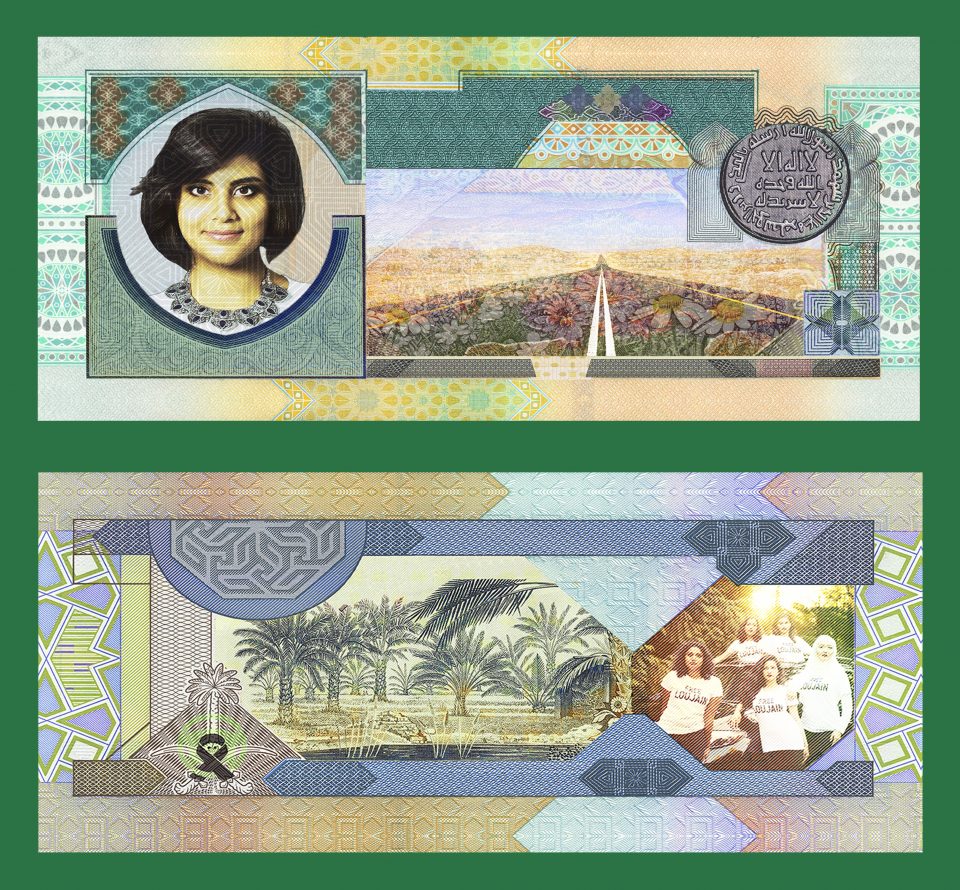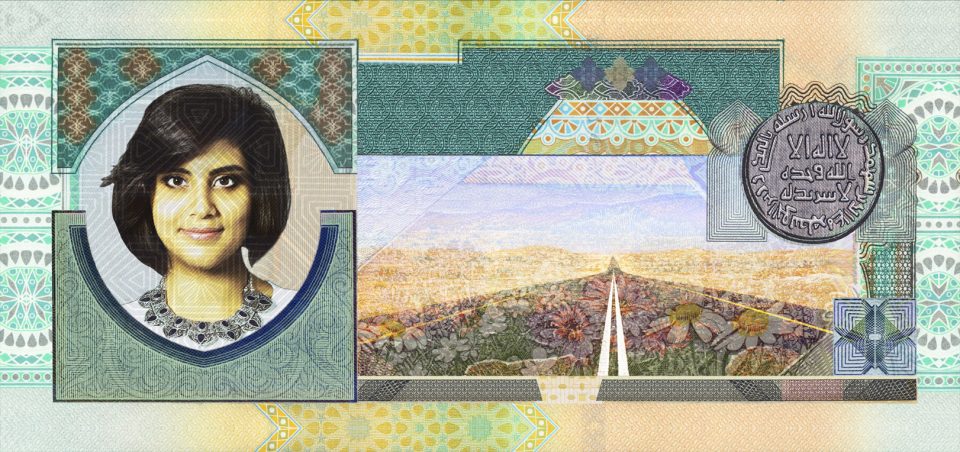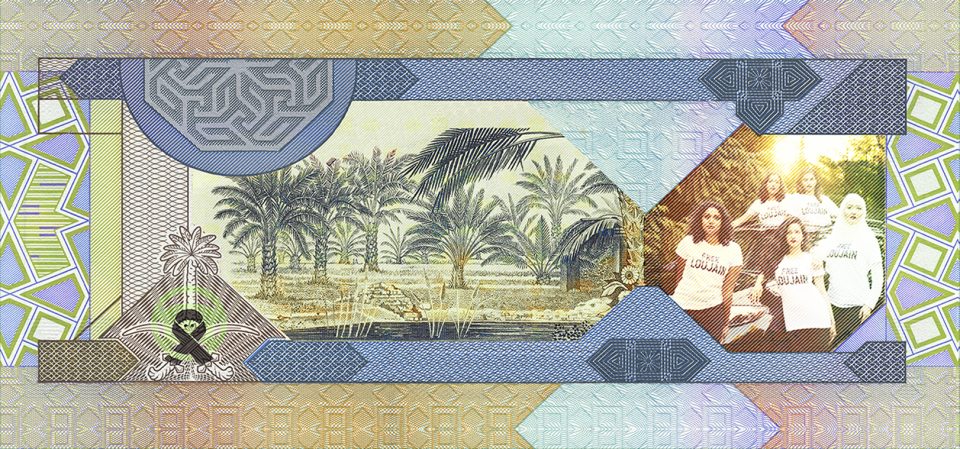In Honor of Loujain al-Hathloul and Women2Drive Movement
September, 2019
Source Images:
Front: (1) Portrait of Loujain al-Hathloul. (2) Illustration of 7th century gold dinar. (3) Illustration of Saudi Arabian meadows. (4) New Saudi-Oman road. (5) Saudi banknotes.
Back: (1) Image of Loujain al-Hathloul’s friends wearing “Free Loujain” shirts in a photo parodying a Vogue Arabia cover image of a Saudi princess in a red convertible; Photography by Doaa Jamal. (2) Logo of the Women2Drive Movement: قيادة المرأة في السعودية
a campaign founded by Saudi women advocating for women’s right to drive on public roads. (3) Illustration of palm trees. (4) Saudi banknotes.
Until June 2018, Saudi Arabia was the only country in the world arresting women for driving in public. Loujain al-Hathloul, a prominent women’s rights activist and now a political prisoner, was among several women arrested in 2018 for leading the Women2Drive movement. In 2014 Loujain was detained for 70 days for live streaming herself driving with her United Arab Emirates (UAE) driving license while attempting to cross the border from UAE into Saudi Arabia. Since her most recent arrest in May 2018, she remains incarcerated on charges of attempting to destabilise the kingdom and suspicious contact with foreign entities. According to family members, Loujain and other women detainees from the driving campaign were subjected to torture and sexual abuse. The Saudi government denies these allegations.
Loujain’s brother stated that the government offered to release her in exchange for denying she was tortured, but she rejected this offer.
For years, Saudi women have been actively raising awareness about women’s rights primarily through social media campaigns. Gaining the right to drive and ending male guardianship have been two central issues addressed in the campaigns.
In 1990, 47 Saudi women held the first formal protest defying the driving ban. They lined up their cars and drove around the capital city Riyadh for 30 minutes until they all got arrested by the religious police.
In 2011, activist Manal al-Sharif posted a video on social media of herself driving and explained her views on why Saudi women should be allowed to drive. This video, used as a part of the Women2Drive campaign, was viewed by more than 300,000 people in one day and gained international attention. As a result, Manal was arrested and later released on bail. Arresting activists is a common strategy used by the Saudi government to intimidate, silence, and censor their voices.
Shortly after Loujain’s arrest, Crown Prince Mohammed bin Salman issued a royal decree to end the ban on women driving. While the easing of legal restrictions heralds a new cultural chapter for Saudi women, the fate of Loujain and other detained activists remains uncertain, as their trials are being held behind closed doors. This breakthrough is the result of many years of collective organizing and activism by Saudi women activists, but the battle for equality still has a long way to go.
This banknote is available for sale. Half of the proceeds goes to Democracy Now! , a non-profit independent news organization , and the other half covers production costs.
Mission Statement by Democracy Now!:
Democracy Now! produces a daily, global, independent news hour hosted by award-winning journalists Amy Goodman and Juan González. Their reporting includes breaking daily news headlines and in-depth interviews with people on the front lines of the world’s most pressing issues. Democracy Now! Features international journalists, grassroots leaders, independent analysts, as well as ordinary people directly affected by world events and U.S. policy.
______________________________________________________________________________
Foreign Exchange incorporates the emblems taken from banknotes and utilizes images from news media to highlight voices of resistance from countries that have been impacted by U.S. national interests. The banknotes feature influential figures and monumental events that draw attention to socio-political tensions existing both within a country’s borders and beyond. Foreign Exchange offers an alternative platform to archive and share cultural currencies.



